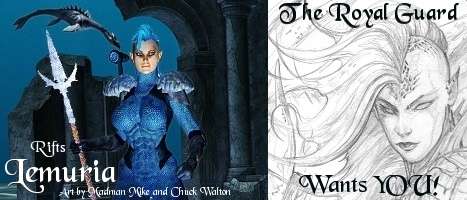Sentinel wrote:The game aspect is something that once dominated the genre, but has faded in importance as time has gone on.
You obviously don't visit ENWorld.

Sentinel wrote:Good role-playing was not a determination, and even if you came up with a good idea or critical plot, you were living and dying by dice rolls. This was the "game" element at work. Rules were inflexible, and the structure of war-gaming was prevalent.
This was not my experience at all. As games developed more rules, there was less flexibility in game play. The less rules in the games - such as the early versions of D&D, Traveller, T&T - the more flexible because the GM needed to make stuff up on the fly to keep the game moving instead of looking up Rule XYZ in Supplement #234.
Compare the rules pages in the Red Book vs. 3.5 PHB and tell me how which one is "inflexible" - back then, we just did kewl stuff and now you have to have the right skill, right feat, right charm or whatever.
Also, there was no real war-game structure in any RPG. I play war games and there has never been formation rules, obsession of terrain vs. movement, standardized actions or any of the factors that define war games in RPGs. The whole ability to play without counters or a board mean that RPGs have near zero wargame structure since Gygax first sold the white box.
If anything 4th Edition D&D is going to be the closest RPG to the wargame model because it requires a board and minis and will have standardized and defined actions on that wargame board. For all intents and purposes, 4e will be a minis/RPG hybrid.
This is completely different than early D&D gameplay. Go on Dragonsfoot's forum and ask about how many people played AD&D for decades without regularly minis and battlemaps.
Sentinel wrote:And characters certainly lived and more importantly died more frequently.Players invested significantly less time and effort into developing characters, compared to more 'modern' games.
I do not find players in modern games spending time "developing characters" - they are just gaming the system creating builds. It now takes longer to start having fun. Your Commando in Mechanoids took 5 minutes to create and runs around shooting stuff just like your Rifts Headhunter who takes 1 hour to make. That's just 55 minutes less of fun
Also, crunching numbers is not "developing characters". The time spent on personality and background has not changed. It has always been something that depends on the player and GM individually.
Sentinel wrote:Quite obviously, things have changed.
Your data is WAY too limited to make this statement. Many gaming groups still just play RPGs as a game to roll dice and eat Cheetos and don't invoke any drama club fantasies.
Sentinel wrote:Players rarely spoke as their characters, but instead would say things like "My paladin says, somewhat majestically..." and would statically recite their paladins' line. You acted "in-character" when you did something along a narrow path of character class definition, and were "out-of-character" when you deviated from that path. This was restrictive to creativity however, and eventually role-playing pushed back those boundaries.
Again, your data is way too limited to make any such statement. I just came from running 5 RPGs at a local convention and as usual - as it has been since the late 70s when I started RPGs - there are players who talk in character and others who do not. There has be NO evolution of any kind whatsover. Everyone plays as they like to play.
As for "narrow path of character class", that doesn't work. T&T and Traveller and Champions - some of the biggest RPGs in the early 80s, had little or no class definition. As for D&D / Palladium, classes were supposed to be "restrictive" because classes give niche protection to allow each player to shine in the spotlight.
Sentinel wrote:Story-telling became more significant, eclipsing the importance of game structure and adherance to system mechanics. If a rule were found to be an impediment to creative method acting or story telling, it was trampled underfoot, a sacrifice for the art of the story.
Again, you are only talking from what appears to be a very limited personal experience. Back in the early 80s, I met GMs who put system over story and GMs who put story over system. It was normal at conventions to have "rules lawyers" who were an obviously different breed than the mainstream GMs who did not put rules first.
RPGA - the biggest group of organized RPG players in the world - certainly put system ahead of story in order to create a standardized and "fair" experience.
It is important to note that there is no "Story-Gamer" international organization hosting events around the world every month for hundreds of thousands of players.
Sentinel wrote:Characters died less frequently, because the death of a character was anathema to a good story, and certainly, players invested a substantial amount of effort into developing a good character.
Funny, but back when character death was more common and gameplay was more important than ego stroking, our hobby was strong and we had ten times the number of players. Now that we coddle and trade facing challenge for bad improv, our hobby is dying.
Hmm....makes you wonder.
Sentinel wrote:Concepts became more and more grandiose, characters became more complex, and campaign worlds took on a diversity that they never possessed previously.
AGAIN, this is strictly an uniformed personal opinion and it is certainly not backed up with facts.
Instead of opinion, I will point you at Glorantha and Tekumel - both products of 70s/80s gaming and STILL the most complex game settings in the industry.
All this so-called "evolution of gaming" has done NOTHING but kill the hobby and drive sales down to poverty levels where a handful of companies scramble to barely make a living.








